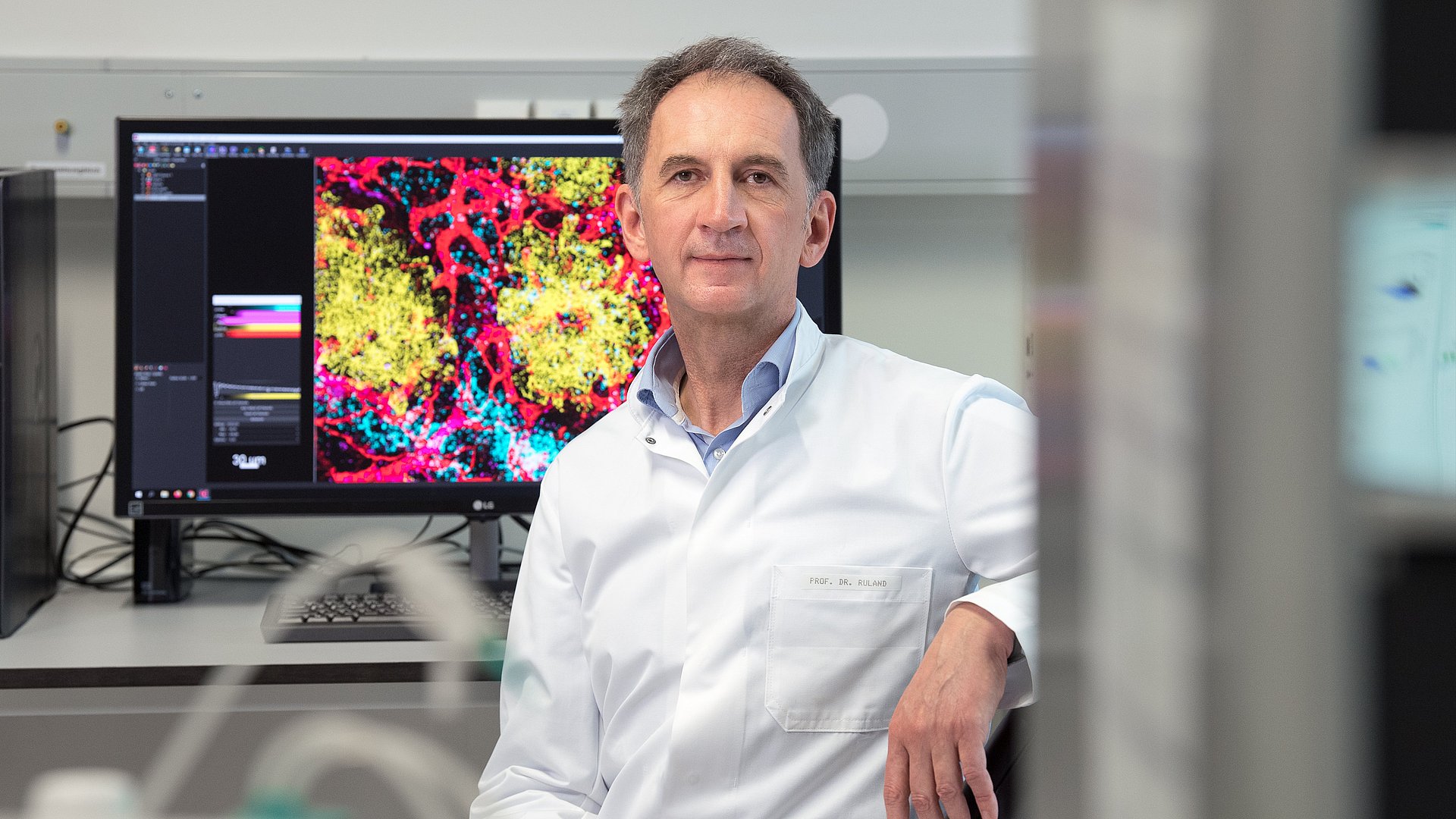A team from the Technical University of Munich (TUM) has decoded the factor that makes T cell lymphomas grow comparatively rapidly: A missing "emergency shut-off switch" results in the lymphomas processing particularly large amounts of sugar and triggers other processes as well. Medications for other types of cancer can stop this process, causing the tumor cells to die off. The process is to be verified in clinical studies in the near future.
 Astrid Eckert / TUM
Astrid Eckert / TUM T cell lymphomas are a subgroup of tumors which are especially aggressive and difficult to treat, in part because much remains as yet unknown about the molecular processes involved in this type of cancer. A team led by Prof. Jürgen Ruland, director of TUM's Institute for Clinical Chemistry and Pathobiochemistry and Principal Investigator at TranslaTUM, the TUM Central Institute for Translational Cancer Research and Prof. Jaehyuk Choi of Northwestern University in Chicago have successfully answered important questions and formulated new treatment strategies.
The lymphomas arise through genetic changes in certain immune cells, referred to as T cells, which then lose their function, reproduce in great quantities and form tumors at various locations in the body. In a previous study in "Nature", Ruland's team was able to prove that a particular gene had changed in approximately one third of the T cell lymphomas. This gene contains the "blueprints" for the protein PD-1. PD-1 normally functions as a sort of emergency shut-off switch: Referred to as a tumor suppressor, it prevents the mutated cells from reproducing and resulting in cancer.
Sugar metabolism stimulated
"We've discovered that the inactivity of PD-1 in the T cells triggers decisive processes," says Jürgen Ruland. "For example, the sugar metabolism in the tumors is stimulated. You could say the cells initially take in a large volume of sugar in order to have the energy they need to grow."
In addition, when PD-1 is deficient, the enzymes phosphoinositide 3-kinase (PI3K), mammalian target of rapamycin (mTOR) and ATP citrate lyase (ACLY) are particularly active in the cells. These enzymes form the initial basis for the increased sugar metabolism activity and for various epigenetic mutations in the cells. The latter are processes which activate or deactivate individual genes. "In the case of T cell lymphomas, the epigenetic mutations caused by ATP citrate lyase additionally stimulate tumor growth," says Jürgen Ruland.
Medications for other tumors could be effective
In tests with mice and cell cultures from human T cell lymphomas, the team was able to show that the new findings could presumably be used in cancer therapies. Here it was proven that the T cell lymphoma cells which have lost the PD-1 emergency shut-off switch react very sensitively to inhibitors for PI3K, mTOR and ACLY. Several of these inhibitors are already available in the form of medications and are currently in clinical development for combatting other tumor illnesses. The efficacy of this inhibitor for aggressive T cell lymphomas is to be investigated in clinical studies which are to be launched in the USA in the very near future.
Wartewig, T., Daniels, J., Schulz, M. et al. „PD-1 instructs a tumor-suppressive metabolic program that restricts glycolysis and restrains AP-1 activity in T cell lymphoma". Nat Cancer (2023). doi.org/10.1038/s43018-023-00635-7
- TranslaTUM is an interdisciplinary research institute at TUM. At TranslaTUM, doctors work with colleagues from the fields of natural sciences and engineering on research into causes, diagnostics and potential treatments of cancerous diseases.
- Prof. Ruland has received numerous awards for his research, including the Gottfried Wilhelm Leibniz-Preis. He is spokesperson of the Transregio SFB 1335 „Aberrant Immune Signals in Cancer".






